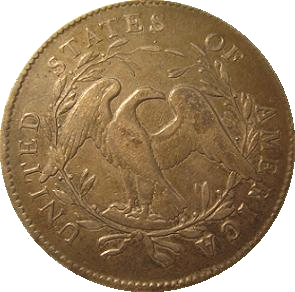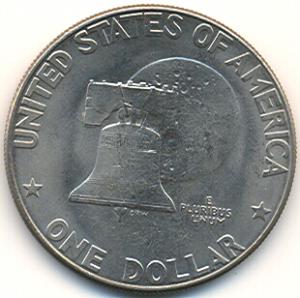 The sermon I heard last Sunday was based on the final commandment of the Big Ten, “You must not covet your neighbor’s wife, nor ox, nor donkey, nor anything else that is your neighbor’s.” Of course, I have never lived next to anyone who had a donkey or ox, though there were, and are, certainly wives involved. The Hebrew from the word “covet” is chamad, which surely can mean “to covet” or “to desire,” but I am interested in its broader meaning today. In effect, there is no distinction between the desire for something and the obtaining of that something in the meaning of this word. In other words, what this commandment is about, I think, is obsession. Obsession, as it is used in the 21st century world, means the inordinate lust for something or someone, a desire so profound, so all consuming, that nothing else can be seen as significant or valuable. When one is obsessed, one is swallowed up by a desire so deep that all other thoughts are finally tuned out, made meaningless, rendered moot.
The sermon I heard last Sunday was based on the final commandment of the Big Ten, “You must not covet your neighbor’s wife, nor ox, nor donkey, nor anything else that is your neighbor’s.” Of course, I have never lived next to anyone who had a donkey or ox, though there were, and are, certainly wives involved. The Hebrew from the word “covet” is chamad, which surely can mean “to covet” or “to desire,” but I am interested in its broader meaning today. In effect, there is no distinction between the desire for something and the obtaining of that something in the meaning of this word. In other words, what this commandment is about, I think, is obsession. Obsession, as it is used in the 21st century world, means the inordinate lust for something or someone, a desire so profound, so all consuming, that nothing else can be seen as significant or valuable. When one is obsessed, one is swallowed up by a desire so deep that all other thoughts are finally tuned out, made meaningless, rendered moot.
The terrible story of Achan, found in Joshua 7, makes the point. Joshua sends men to spy out the land YHWH has promised, and they determine that it is ripe for the plucking. But when the army attempts to defeat the local tribes, they are repulsed, and Joshua inquires of his God why this unexpected disaster has occurred. YHWH tells him that some of the foreign objects that YHWH has selected for complete destruction have in fact not been destroyed but rather stolen, a sin so great the YHWH brought defeat to the chosen people. Joshua immediately seeks out the culprit, and after several rolls of the sacred dice, Achan is discovered. He confesses that when he saw among the earlier spoils of victory “ a beautiful mantle from Shinar, two hundred shekels of silver, and a bar of gold weighing fifty shekels, I coveted them and took them” (Joshua 7:21). He tells Joshua that the hoard may be found in his tent. His punishment is to be stoned to death, he and his family, and all of his possessions are burned. Thus does obsession lead to destruction and death.
This tale illustrates the most common example of the obsession for most people: wealth. Who does not desire more money than they have? Even a billionaire may be obsessed with the desire for more money still, although exactly why that is so is perhaps difficult to fathom by those of us who are not in that financial stratum. Of course, money is hardly the only obsession that confounds us: there are power and status and beauty and, well, you fill in your own blank. I am now going to tell you about my obsession, one that has obsessed me for a very long time.
Yes, it has to do with money, but it is not exactly the desire for more of it, although having more of it would surely be a lovely thing. For me, my obsession is my feeling that I just do not have enough money, and the fear that I will run out of it one day. This has led me to the idea that I have not made enough money in my life and have thus left my wife and me short in our retirement. I chose a profession, education, that in the main does not reward its practitioners with vast loot, though it is true that some modern educators do quite well. I toiled in the classroom for 36 years, and ended with a quite decent salary for my labor, but after that salary ceased Diana, who served as a parish minster for some twenty years, and I found ourselves living on relatively modest pensions, Social Security, and a very welcome gift from Diana’s parents’ estate. That seemed adequate until we decided to move to Los Angeles to be with our children and grandchildren, a move that taxed our resources to the limit and, I fear, beyond. Hence, my money obsession was compounded by these new responsibilities.
I should provide at least a hint of a personal rationale for my financial fears. My father was dreadful with money, leaving my mother, at his death, with multiple maxed- out credit card bills that she knew nothing about. She was forced to work into her 80’s and took up residence in ever-decreasing domiciles, finally dying at 92 in a one-room apartment in a decent retirement building. Her total estate at her death was $1600, which I and my three brothers divided equally. Her financial situation was never easy, and her four sons contributed to her living for some years. All of that was a direct result of my father’s poor judgment. I vowed I would do better, and in the main I have. But my fears, my obsession, refuse to ease.
We have now nearly completed the small place we hope to live in for the remainder of our lives. As I described in a recent blog, it is quite beautiful and perfectly adequate for two aging people who love each other and have vowed to support one another always. Yet, my obsession persists, causing pain to Diana, sometimes splaying out on my acquaintances, with no apparent end of anguish to me. What is to be done about obsession?
As a deep lover of the Hebrew Bible, as I hope I show each week in my writing, I can always return to passages and ideas that dot its pages. In this case, I want to reflect again on what by Judaism is termed the first commandment: “I am YHWH, your God, who brought up out of the land of Egypt, out of the house of bondage.” It is, of course, not a commandment at all, but rather a claim about the nature of God. This God is known particularly by the divine action known ever after as exodus. YHWH is God of the exodus. In other words, YHWH is identified by a universal desire to get people out of slavery, out of prison, and out of any sort of obsession. But that can only happen if I focus my attention not on my monetary fears, but on the God of freedom who I claim to worship and follow. Any obsession that puts YHWH aside, makes YHWH less than the freeing God of exodus, needs itself to be supplanted by a focus on the action of YHWH.
To put it another way: when the snake of the garden urges the woman to eat of the tree of knowledge “in order to become God (or to be like God),” he asks her to take her focus off YHWH and to put her focus on her obsession with divine knowledge. The result? Fig leaf aprons! And if you have ever felt a fig leaf, you will know just how unsatisfactory and uncomfortable such a thing can be. Obsession here leads to fig leaf clothing, scratchy and ridiculous. YHWH, the giver of freedom, has a better way, namely, clothing of animal fur. I need to cast off my fig leaf apron of monetary fear, and hold tight to the skin tunic of YHWH’s freedom.
Easier said than done! I can compose a good remedy for my obsession, but can I actually do it? The beginning of conquering any obsession is the recognition that one is obsessed, and that God is always anxious to stand with anyone who desires to live freely.
Thus, my goal is to keep my gaze on the freeing God in order to defeat my obsession with money. With what are you obsessed? Help me to focus on God in order that we might together find real freedom.











